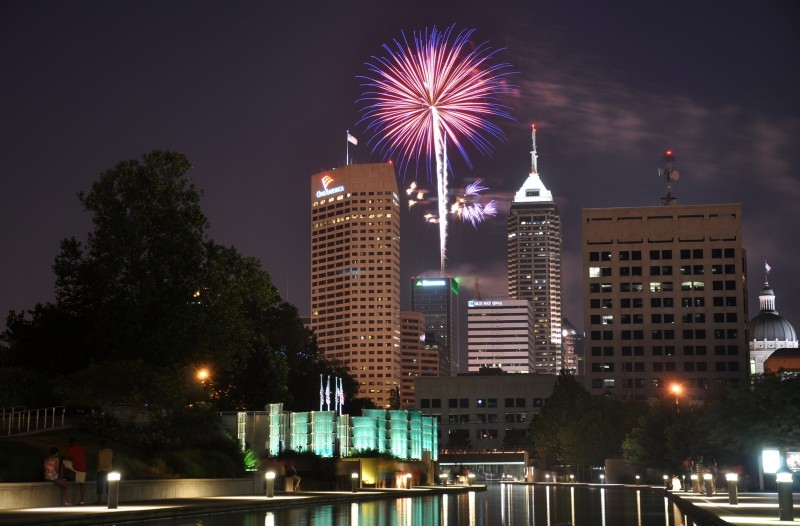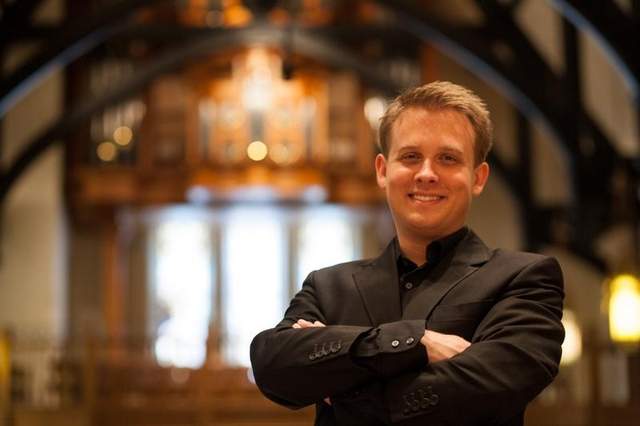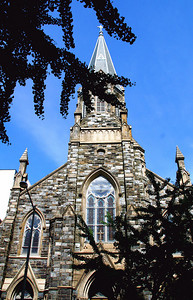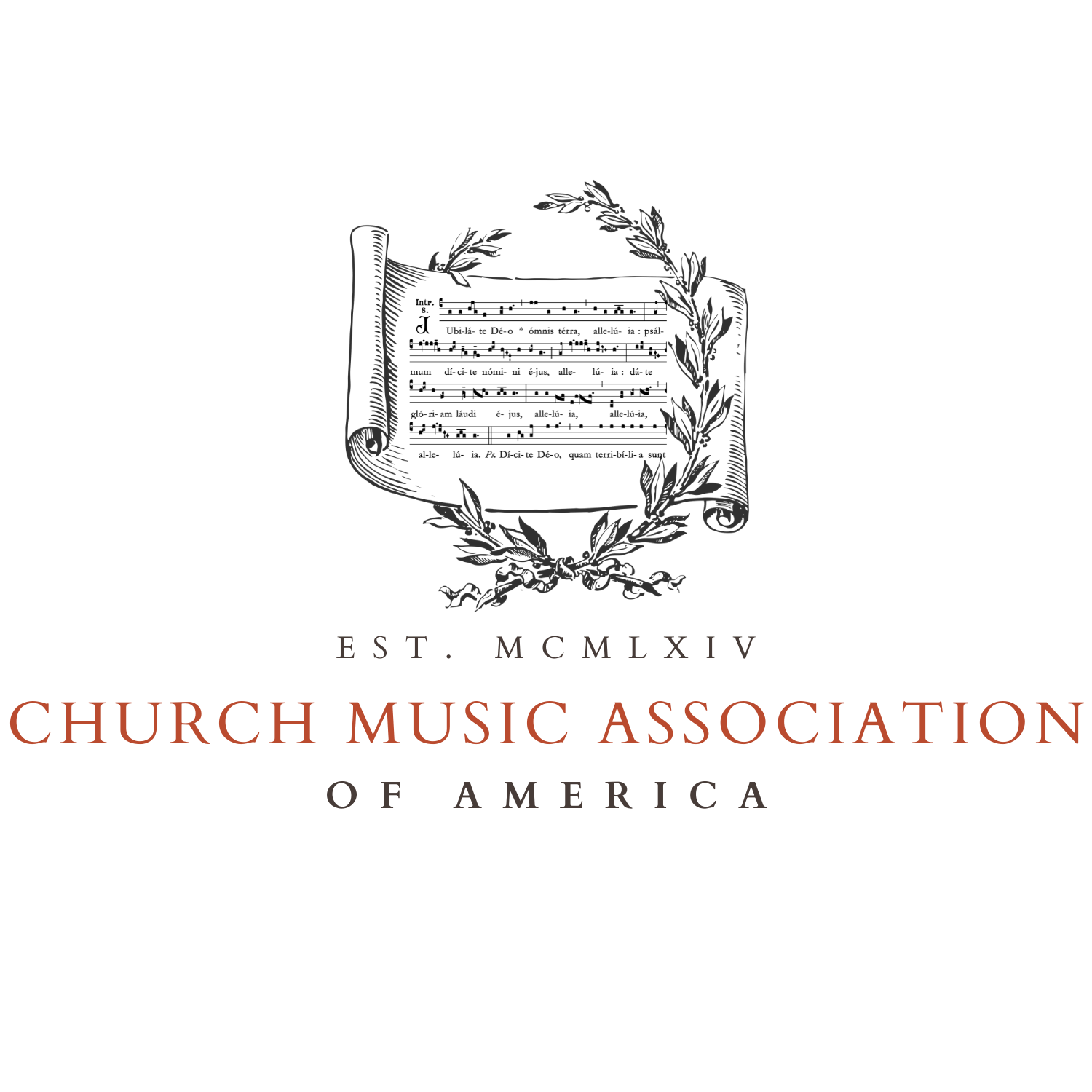SACRED MUSIC COLLOQUIUM XXIV June 30-July 6, 2014 Indianapolis, Indiana
Celebrate the 4th with the CMAA!
 You are invited to experience the Sacred Music Colloquium, the largest and most in-depth teaching conference and retreat on sacred music in the world. Our 2014 program offers new and expanded opportunities for learning, singing, listening, and interacting with the best minds and musicians in the Catholic world today!
You are invited to experience the Sacred Music Colloquium, the largest and most in-depth teaching conference and retreat on sacred music in the world. Our 2014 program offers new and expanded opportunities for learning, singing, listening, and interacting with the best minds and musicians in the Catholic world today!
This summer will mark the 50th Anniversary of the Church Music Association of America. Come to this year’s Colloquium and celebrate with us.
Update: LATE Registration Closed.
- New! Download a high-res copy of this year’s music packet (20.5 mb)
- New! Download a smaller version of the music packet (10.2 mb)
- New! Download an epub version (26.1 mb), which you can read on a computer or on an iPad with iBooks
- New! Download a pdf that includes the schedule in list and chart views, a map of downtown Indianapolis, and info on area restaurants
- View the Schedule
- Chant Course descriptions
- Polyphonic Repertoire list
- Graduate or Undergraduate Credit through Duquesne University
- Breakout Course Descriptions
- Instructions for Clergy
- Instructions for Altar Servers
- Make your hotel reservation at the Sheraton City Centre
- Maps of downtown Indianapolis
- Shuttle information from Airport
- Flyer to download and post
- Around and about in Indianapolis
The primary focus of the Colloquium is instruction and experience in chant and the Catholic sacred music tradition, participation in chant choirs, daily and nightly lectures and performances and daily celebrations of liturgies in both English and Latin.
You are there not merely as an attendee but as an integral part of the greatest music you will ever experience. It will will touch your heart and thrill your artistic imagination.
Attendance is open to anyone interested in improving the quality of music in Catholic worship. Professional musicians will appreciate the rigor, while enthusiastic volunteer singers and beginners new to the chant tradition will enjoy the opportunity to study under an expert faculty. Those who choose not to sing at all but merely want to learn will find a once-in-a-lifetime opportunity to absorb the full ethos of a world of the best liturgical music.
Do you want to make this trip your family, 4th of July vacation? There are so many things so see in downtown Indy! Learn more about Indianapolis here.
Some Colloquium highlights
- Extensive training in Gregorian chant under a world-class faculty, with choices of a chant class for beginners, and intermediate and and advanced chant classes;
- Morning and afternoon sessions all week with lectures and workshops with the best of the best thinkers and doers in the world of Catholic music;
- Optional choral experience with one of four large choirs singing sacred music of the masters such as Palestrina, Bruckner, Victoria, Di Lasso, Tallis, Josquin, and many others;
- Daily liturgies with careful attention to officially prescribed musical settings in English and Latin;
- Experience in singing or just listening to Mass settings, motets, chants, and responses;
- Two gala dinners with top lecturers and events;
- Individual training in vocal production and technique;
- Conducting practicum;
- Training for Priests in the sung Mass;
- Pedagogy demonstrations;
- Sessions on resources and strategies to implement in your own parish;
- All music, including prepared packets of chant and polyphony, as part of registration.
Two inspiring venues
Colloquium Masses will be held at St. John the Evangelist (1830) in the heart of downtown Indy. In addition, historic Christ Church Cathedral (Episcopal) will be hosting many of our rehearsals and organ sessions. On June 30th, the Christ Church Cathedral Choir will perform a Choral Evensong for the Colloquium. Read more about it here.
AMONG THE FACULTY
Dr. Mary Jane Ballou, Director of Cantorae St. Augustine, St. Augustine, FL
Adam Bartlett, The Liturgical Institute, Mundelein, IL
Wilko Brouwers, Monteverdi Choir, the Netherlands
Dr. Horst Buchholz, St. Louis Cathedral
Charles Cole, Westminster Cathedral; Brompton Oratory
Dr. Jennifer Donelson, CMAA Academic Liaison; Nova Southeastern University
Janet Gorbitz, Assumption Parish, Roswell, NM
David J. Hughes, St. Mary, Norwalk, CT
Simon Thomas Jacobs, winner of the First Prize and Audience Prize at the 2013 St Albans International Organ Competition and Fellow in Sacred Music at Christ Church Cathedral, Indianapolis
Dr. Ann Labounsky, Duquesne University
Dr. William Mahrt, CMAA President, Stanford University
Dr. Denis McNamara, Liturgical Institute of the University of Saint Mary of the Lake / Mundelein Seminary
Matthew J. Meloche, Sts. Simon and Jude Cathedral, Phoenix, AZ
Jeffrey Morse, St Stephen, the First Martyr Church; Sacramento, California
Dr. Mee Ae Nam, Eastern Michigan University
Rev. Robert Pasley, CMAA Chaplain; Pastor, Mater Ecclesiae, Berlin, NJ
William Riccio, Jr., St. Mary, Norwalk, CT
Jonathan Ryan, Organist; Jordan Prize Winner
Dr. Edward Schaefer, University of Florida
Rev. Christopher Smith, Prince of Peace, Taylors, SC
Dr. Susan Treacy, Ave Maria University
Scott Turkington, Director of Sacred Music, Holy Family Church & Holy Family Academy; Minneapolis, MN
Dr. Paul Weber, St. Martin of Tours Catholic Church; Louisville, KY.
A few comments (among hundreds) from past attendees
Listen to sound files from 2008-2013.
- “I still can’t get over the unforgettable experience of attending the Colloquium. It was a real eye-opener and has enriched me musically, spiritually and intellectually. The instructors were excellent! The food and entertainment were great! The Masses were heavenly! I am already looking forward to the next one and hope I could bring along more people to help in restoring the Church’s musical and liturgical treasures.” Edwin Fernandez
- “Thank you from the bottom of my heart for the wonderful work you all put into the Colloquium. This was my second year attending and I thoroughly enjoyed myself. The information was great, the conducting was amazing and the organization was fabulous. I had tears in my eyes several times during the Masses… I attended the colloquium last year as a volunteer musician at our parish and this year I attended as music director for our parish. I was hired three months ago and since then we have completely revamped our 11:30 Mass. Our pastor and I did a ton of education through bulletin inserts and preaching. I immediately formed a schola….”
- “It was a wonderful experience for me, truly six days of heaven, and I will never forget it. I particularly enjoyed the conducting class, and the polyphony rehearsals, the lectures and organ performances and improvisations, all the Masses, of course. In short, everything that I attended. I know that this success did not come without a tremendous amount of work on everyone’s part…” Dove Pierce
- “The CMAA Colloquium has now indisputably claimed a place among prestigious and well-run music conferences. You will certainly want to attend next year’s event – this was my first time, and the experience was overwhelmingly positive!” Gary Penkala, Cantica Nova Publications
Scholarships
The CMAA is dependent on donations for scholarships. If you are interested in sponsoring a musician, priest, or seminarian’s attendance, please write to us at programs@musicasacra.com. If you are registering yourself and would like to give a little extra toward scholarships, you can add that amount to your own fees, and indicate as much on the online or mail in registration form. No amount is too small. All donations are applied directly to scholarships. UPDATE: All scholarship funding has been awarded for this year.
HOTEL ACCOMMODATIONS may still be available, and most conference sessions will be held, at the Sheraton Indianapolis City Centre, which is offering the special conference price of $99 per room per night, plus tax, for single or double rooms, up to occupancy of four per room. Make your reservation before June 4th to get the special group rate. UPDATE: Contact the Sheraton directly to find out availability and rates for Late Registration.
Special group amenities include free internet in all guest rooms (discounted from $11.99 per day) and parking at $8 per day (discounted from $25). The property includes a swimming pool, fitness center, Starbucks, full service restaurant, bar, and business center.
The Sheraton is located on Indy’s famous Monument Circle, and sits directly across the street from Christ Church Cathedral. CVS Pharmacy and Federal Express are right next door in same city block. Make your reservation today.
LATE REGISTRATION FEE: Late registration (Includes $75 nonrefundable deposit, all sessions, materials, opening reception and dinner and a fourth of July reception and rooftop dinner celebration) is $660. Brunch on Sunday, July 6, is optional and available along with your registration fee for an additional $36 per person. For special dietary needs for any or all of the banquet events, add $25. Regular Registration ended on June 4, 2014.
Late registrations are closed.
Registration is a two-step process
- Fill in and submit registration form below.
- Make payment (see options, below). Your registration will not be considered complete until you’ve done both. If you have a question about payment, e-mail Mia Coyne. If you have a general question, e-mail Janet Gorbitz.
Payment options
Pay by check: Make check payable to the CMAA and mail to CMAA Programs, 4100 Dirt Road, Roswell, NM 88201 or Pay online via Pay Pal:
For installment payments (please note that payment in full should have been received by June 4th.):
> Scholarship donations are gratefully accepted:


 The Sacred Music Colloquium, sponsored by the Church Music Association of America, was an unprecedented success this year, with 140 people attending from around the country and the world. They studied Gregorian chant and polyphony for use in liturgy, and sang the very music from classroom setting at Masses held at the Crypt Church of the National Shrine of the Immaculate Conception, at The Catholic University of America, Washington, D.C.
The Sacred Music Colloquium, sponsored by the Church Music Association of America, was an unprecedented success this year, with 140 people attending from around the country and the world. They studied Gregorian chant and polyphony for use in liturgy, and sang the very music from classroom setting at Masses held at the Crypt Church of the National Shrine of the Immaculate Conception, at The Catholic University of America, Washington, D.C.